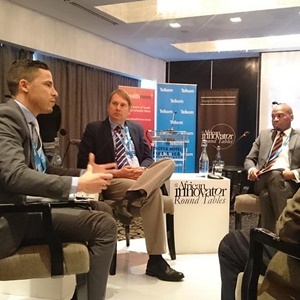
Telemedicine – the remote diagnosis and treatment of patients – has obvious benefits for a country like South Africa, where resources (both human and infrastructural) are hard-pressed. But there are some potential obstacles to wide-spread implementation.
Read: Healthcare Innovation Summit set for Johannesburg
At African Innovator magazine’s Round Tables Healthcare Innovation Summit, held in Johannesburg on 19 August, some of the challenges were discussed during a panel meeting.
Follow Health24 on Twitter for tweets from the event
Delegate Dr Maggie Mojapelo (CEO Mediwell) said this kind of innovation will “be a challenge if the primary healthcare doctor is not included in the continuum”. She said that uptake of technology on the ground is very low as practitioners tend not to understand the possible benefits.
Dr Anton Prinsloo, IT director, Independent Practitioners Association, noted that change is hard to implement in the primary healthcare setting, and that change management therefore pays off.
Telemedicine: are robots beyond the hype? Being discussed now at #HealthcareInnovationRT
— Health24.com (@Health24com) August 19, 2015A number of delegates pointed out that preparation for a future that includes telemedicine – whether that’s diagnosing at a distance, using high-tech records solutions in the cloud, or using robotic technology for surgery – is not addressed in any current medical practitioners curriculum.
Anglo American’s chief medical officer, Dr Jan Pienaar, pointed out in his presentation on technology in health record management that training on the job, and ongoing training and support, is also crucial, for support staff as well as medical staff.
Read: Telkom confirmed as sponsor of Healthcare Innovation Summit
Another challenge is that the policies of organisations such as the Healthcare Practitioners Association (HPCSA) have not kept pace with a rapidly evolving technology environment. Dr Prinsloo pointed out one practical example: there’s still no legislative provision for doctors to use digital signatures on prescriptions.
Other major challenges, of course, relate to practical issues: seamless connectivity is one; and Dr Pienaar noted that it’s vital to have contingencies to make alternative energy sources available.
Have a look at some of the tweets:
#HealthcareInnovationRT TweetsAlso read:
All about the Inclusive Healthcare Innovation Initiative




 Publications
Publications
 Partners
Partners














